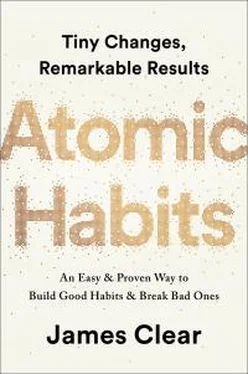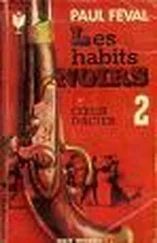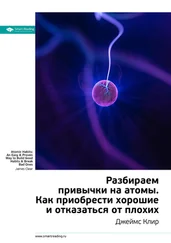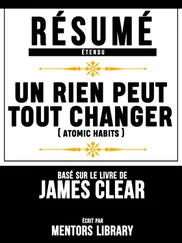Craving is about wanting to fix everything. Observation without craving is the realization that you do not need to fix anything. Your desires are not running rampant. You do not crave a change in state. Your mind does not generate a problem for you to solve. You’re simply observing and existing.
With a big enough why you can overcome any how .Friedrich Nietzsche, the German philosopher and poet, famously wrote, “He who has a why to live for can bear almost any how.” This phrase harbors an important truth about human behavior. If your motivation and desire are great enough (that is, why are you are acting), you’ll take action even when it is quite difficult. Great craving can power great action—even when friction is high.
Being curious is better than being smart.Being motivated and curious counts for more than being smart because it leads to action. Being smart will never deliver results on its own because it doesn’t get you to act. It is desire, not intelligence, that prompts behavior. As Naval Ravikant says, “The trick to doing anything is first cultivating a desire for it.”
Emotions drive behavior.Every decision is an emotional decision at some level. Whatever your logical reasons are for taking action, you only feel compelled to act on them because of emotion. In fact, people with damage to emotional centers of the brain can list many reasons for taking action but still will not act because they do not have emotions to drive them. This is why craving comes before response. The feeling comes first, and then the behavior.
We can only be rational and logical after we have been emotional.The primary mode of the brain is to feel; the secondary mode is to think. Our first response—the fast, nonconscious portion of the brain—is optimized for feeling and anticipating. Our second response—the slow, conscious portion of the brain—is the part that does the “thinking.”
Psychologists refer to this as System 1 (feelings and rapid judgments) versus System 2 (rational analysis). The feeling comes first (System 1); the rationality only intervenes later (System 2). This works great when the two are aligned, but it results in illogical and emotional thinking when they are not.
Your response tends to follow your emotions.Our thoughts and actions are rooted in what we find attractive, not necessarily in what is logical. Two people can notice the same set of facts and respond very differently because they run those facts through their unique emotional filter. This is one reason why appealing to emotion is typically more powerful than appealing to reason. If a topic makes someone feel emotional, they will rarely be interested in the data. This is why emotions can be such a threat to wise decision making.
Put another way: most people believe that the reasonable response is the one that benefits them: the one that satisfies their desires. To approach a situation from a more neutral emotional position allows you to base your response on the data rather than the emotion.
Suffering drives progress.The source of all suffering is the desire for a change in state. This is also the source of all progress. The desire to change your state is what powers you to take action. It is wanting more that pushes humanity to seek improvements, develop new technologies, and reach for a higher level. With craving, we are dissatisfied but driven. Without craving, we are satisfied but lack ambition.
Your actions reveal how badly you want something.If you keep saying something is a priority but you never act on it, then you don’t really want it. It’s time to have an honest conversation with yourself. Your actions reveal your true motivations.
Reward is on the other side of sacrifice.Response (sacrifice of energy) always precedes reward (the collection of resources). The “runner’s high” only comes after the hard run. The reward only comes after the energy is spent.
Self-control is difficult because it is not satisfying.A reward is an outcome that satisfies your craving. This makes self-control ineffective because inhibiting our desires does not usually resolve them. Resisting temptation does not satisfy your craving; it just ignores it. It creates space for the craving to pass. Self-control requires you to release a desire rather than satisfy it.
Our expectations determine our satisfaction.The gap between our cravings and our rewards determines how satisfied we feel after taking action. If the mismatch between expectations and outcomes is positive (surprise and delight), then we are more likely to repeat a behavior in the future. If the mismatch is negative (disappointment and frustration), then we are less likely to do so.
For example, if you expect to get $10 and get $100, you feel great. If you expect to get $100 and get $10, you feel disappointed. Your expectation changes your satisfaction. An average experience preceded by high expectations is a disappointment. An average experience preceded by low expectations is a delight. When liking and wanting are approximately the same, you feel satisfied.
Satisfaction = Liking – Wanting
This is the wisdom behind Seneca’s famous quote, “Being poor is not having too little, it is wanting more.” If your wants outpace your likes, you’ll always be unsatisfied. You’re perpetually putting more weight on the problem than the solution.
Happiness is relative. When I first began sharing my writing publicly it took me three months to get one thousand subscribers. When I hit that milestone, I told my parents and my girlfriend. We celebrated. I felt excited and motivated. A few years later, I realized that one thousand people were signing up each day. And yet I didn’t even think to tell anyone. It felt normal. I was getting results ninety times faster than before but experiencing little pleasure over it. It wasn’t until a few days later that I realized how absurd it was that I wasn’t celebrating something that would have seemed like a pipe dream just a few years before.
The pain of failure correlates to the height of expectation.When desire is high, it hurts to not like the outcome. Failing to attain something you want hurts more than failing to attain something you didn’t think much about in the first place. This is why people say, “I don’t want to get my hopes up.”
Feelings come both before and after the behavior.Before acting, there is a feeling that motivates you to act—the craving. After acting, there is a feeling that teaches you to repeat the action in the future—the reward.
Cue > Craving (Feeling) > Response > Reward (Feeling)
How we feel influences how we act, and how we act influences how we feel.
Desire initiates. Pleasure sustains.Wanting and liking are the two drivers of behavior. If it’s not desirable, you have no reason to do it. Desire and craving are what initiate a behavior. But if it’s not enjoyable, you have no reason to repeat it. Pleasure and satisfaction are what sustain a behavior. Feeling motivated gets you to act. Feeling successful gets you to repeat.
Hope declines with experience and is replaced by acceptance.The first time an opportunity arises, there is hope of what could be. Your expectation (cravings) is based solely on promise . The second time around, your expectation is grounded in reality. You begin to understand how the process works and your hope is gradually traded for a more accurate prediction and acceptance of the likely outcome.
Читать дальше




![Джеймс Клир - Атомные привычки [Как приобрести хорошие привычки и избавиться от плохих]](/books/403243/dzhejms-klir-atomnye-privychki-kak-priobresti-horosh-thumb.webp)



